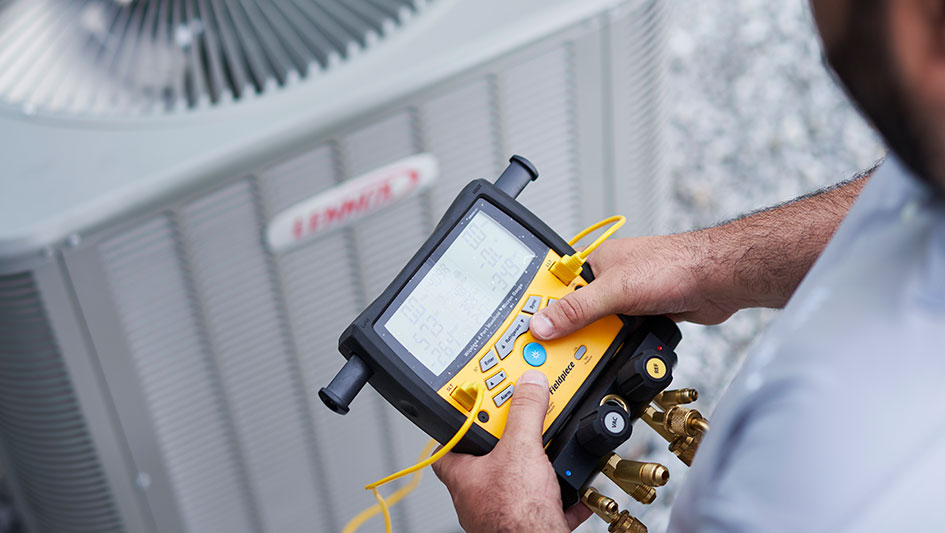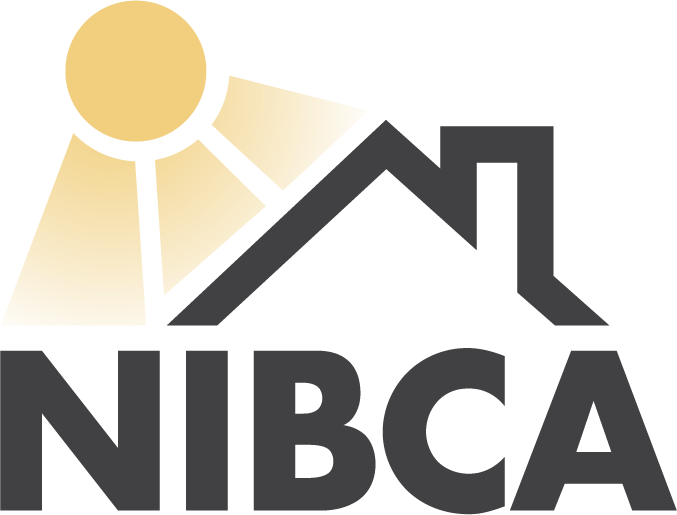
If you’re considering a new, well-paying career, look no further than heating, ventilation and air conditioning. HVAC is one of the quickest-growing careers offered, according to the U.S. Bureau of Labor Statistics, which expects careers in this industry will grow by 13 percent by 2028.
There are a few reasons why these jobs are increasing so fast. One is homeowners taking advantage of government rebates to upgrade to more energy-efficient comfort systems. Then there’s the ban on R-22 Freon® refrigerants, which influences old equipment. Lastly, there’s the red-hot home market and a home shortage that’s driven an increase in new construction residences.
One of the top needed positions is working as an HVAC technician. Find out about what they do, how to become one and about how much you can expect to make.
What Is an HVAC Technician?
An HVAC technician is an individual who repairs, installs and maintains heating and cooling equipment. Most work with both homeowners and business owners. And, most important, you’ll be knowledgeable about:
- Air conditioners
- Furnaces
- Mini-splits and heat pumps
- Thermostats and home zoning
- Indoor air quality products such as air filters and air purification systems
Some are HVAC-R pros, which means they also can take care of refrigeration.
Is an HVAC Career Hard?
While HVAC can be physically difficult, it can also be highly satisfying. As a technician you should be able to:
- Work in extreme settings, such as tight or dirty spaces.
- Work in hot or cold areas since equipment is usually outdoors.
- Work evenings, weekends and overtime during peak demand.
One of the biggest misconceptions about HVAC is that it’s a blue-collar job. You have to have a distinct skill set, in-depth education and ongoing endorsements.
It’s a fantastic career option if you want to:
- Not be saddled with excessive higher education debt.
- Avoid working at a desk or in an office.
- Have job security knowing your position can’t be outsourced.
- Work as your own boss and own your own successful business.
How You Can Start Your Careers as an HVAC Technician
To become an HVAC technician, you’ll need a high school diploma or GED, in addition to comprehensive instruction. Other more specialized (and higher paying) HVAC careers typically require extra education or endorsements.
You can get your certification by going to classes at a community college or trade school. How long it takes to become an HVAC technician depends on the program, which is usually six months to two years. Your employer may also require NATE certification. This stands for North American Technician Excellence, this top endorsement increases your technical expertise to help you better serve customers.
Career Explorer says that technicians who have expertise with tablets, electronics and troubleshooting will be in big demand as equipment becomes more technologically advanced.
Another advantage of working in HVAC is little to no educational debt.
According to Midwest Technical Institute, attending a technical or trade school typically costs around $15,000. A community college typically costs around $5,000 annually. In comparison, the average student debt for a bachelor’s degree is $25,921.
A Typical Day of an HVAC Technician
Your work schedule may vary depending on where you work. If you work in repairs, you may work early, late or be on call. If you work in construction/home building or management, you could have more of a set schedule during usual business hours.
As a technician, you’ll go to different locations for repair, maintenance or installation jobs. Some work might require more time than others, so the number of calls you can take care of might vary.
As we went over previously, you should be used to working outdoors in extreme weather, plus dirty or cramped spots. If you work in a customer-facing role, good customer service skills are always positive.
Potential Compensation for {Professional Technicians|Technicians|Full-Time Technicians and Other HVAC Careers
As HVAC is a rapidly expanding field, your salary will reflect it. The national average salary for an HVAC technician is $49,242, according to ZipRecruiter. Top earners make between $56,600 and $68,000. However, salaries could fluctuate based on your area and its cost of living.
Other than running your own business, there are a wide range of other career opportunities. These can be:
HVAC manager, $72,515 average salary
HVAC service manager, $71,176 average salary
Where HVAC Technicians Are Needed the Most
HVAC technicians are in demand across the United States, but even more so in Florida, California, Texas, New York and Illinois. According to hvacclasses.org, these states employ the highest number of HVAC workers and are dealing with high construction growth. Here’s why:
- Florida: Hurricanes, school and healthcare buildings.
- California: Wildfires, transportation, energy and utility updates.
- Texas: Hurricanes, energy, utility and other infrastructure projects.
- New York: Residential and infrastructure upgrades.
- Illinois: Companies moving to the Chicago area.
Where HVAC Technicians Will Be in High Demand in the Future
Projections Central, who makes long-term occupational projections, expects these states to have the biggest demand for technicians by 2028:
- Utah, 31.1%
- Colorado, 29.7%
- Nevada, 27.9%
- Arizona, 21.4%
- Iowa, Oregon and Montana, 18.5%
- Arkansas, 16.3%
- Florida, 16.2%
- South Carolina, 16%
- Texas, 15.9%
- Idaho, 15.7%
- Washington, 15.6%
- North Carolina, 15.5%
- Tennessee, 15.2%
- Wyoming, 14.3%
- Nebraska, 13.9%
- Indiana, 13.8%
- North Dakota, 13.8%
Here’s where the highest number of new jobs during that time frame are anticipated to be:
- Florida, 5,420
- Texas, 5,530
- California, 4,100
- North Carolina, 2,510
- New York, 2,290
- Colorado, 2,000
- Ohio, 1,550
- Pennsylvania, 1,510
- Virginia, 1,500
- Tennessee, 1,360
- Washington, 1,290
- Georgia, 1,270
- New Jersey, 1,170
- Utah, 1,170
- South Carolina, 1,1060
- Indiana, 940
- Maryland, 820
- Missouri and Arizona, 810
- Michigan, 780
Weather and economic improvement is anticipated to fuel growth in these states, according to hvacclasses.org.
Build a Career in HVAC with Age Heating & Cooling
HVAC technicians are required across the country and in Sandpoint. To find out more about our openings, visit our careers page or reach us at 208-603-2210 today!







